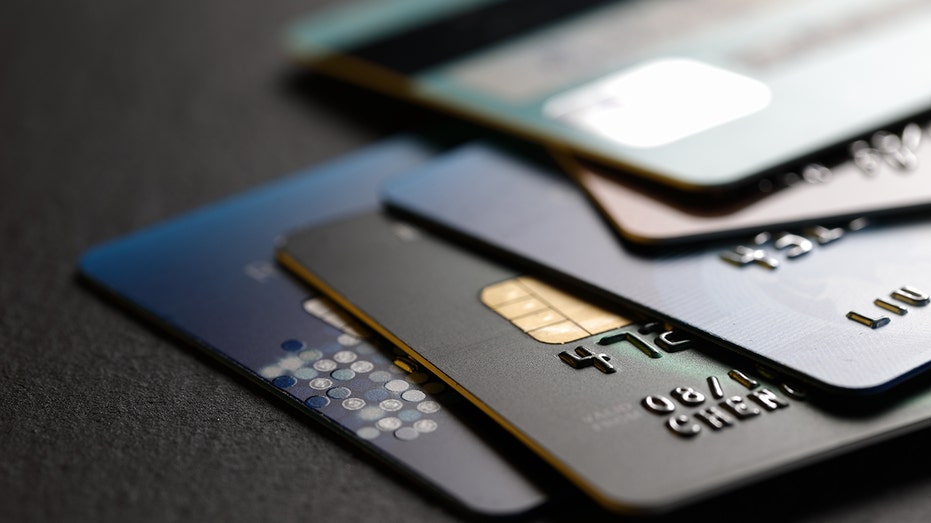Average credit card rate highest since 1996
The average credit card rate hit a record high on Aug. 31
The average credit card rate has reached its highest point in decades, according to a recent survey from Bankrate.com.
Bankrate.com's survey on Wednesday found the average credit card rate hit a record high of 17.96%. That rate is up 3.5% from roughly a month ago and up 10.8% from a rate of 16.21% about a year ago, according to Bankrate.com.
SURVEY FINDS OVERDRAFT, NON-SUFFICIENT FUNDS FEES ARE DOWN, ATM FEES ARE UP
Wednesday's average rate marks the highest it has been since 1996, Bankrate.com said.

Wednesday's average credit card rate of 17.96% marks the highest it has been since 1996, according to Bankrate.com. (iStock / iStock)
"Federal Reserve Chairman Jerome Powell has made it clear that the Fed is not done raising rates — not by a long shot," Ted Rossman, a senior industry analyst at Bankrate.com, said in a statement.
Federal Reserve Chairman Jerome Powell indicated in a speech last week that the Fed would continue taking steps to bring the scorching hot inflation back closer to its 2% goal, which he said could bring "some pain to households and businesses."
NERDWALLET CEO REVEALS THE BEST CREDIT CARDS FOR ‘TRIMMING COSTS’ AMID RECORD INFLATION
"Almost all credit cards have variable rates which track the Prime Rate, which is three percentage points higher than the federal funds rate, which is set by the Federal Reserve," Rossman added. "So there's a direct pass-through from the Fed's actions to credit cardholders."
The Fed approved two back-to-back 75 basis point increases in June and July. Officials have suggested another interest rate hike is likely to occur later in September, and CME Group's FedWatch tool shows many traders expect the Fed to do a third 75 basis point hike when the committee meets.

To avoid paying more on your credit card balance, Ted Rossman, a senior industry analyst at Bankrate.com, suggests the best practice is to "pay way more than the minimum" each month. (iStock / iStock)
"Rate hikes generally affect new and existing balances, so most credit cardholders are currently facing rates that are 225 basis points higher than they were just six months ago," Rossman said, adding that there's a "significant cumulative effect to these rate hikes."
To avoid paying more on your credit card balance, Rossman suggests the best practice is to "pay way more than the minimum" each month.
"Pay it all if you can," Rossman said. "If that's not possible, forget about chasing rewards and seek the lowest interest rate possible. There are 0% balance transfer offers that last as long as 21 months."
CLICK HERE TO READ MORE ON FOX BUSINESS
The Federal Reserve Bank of New York's Quarterly Report on Household Debt and Credit released in early August found credit card debt held by U.S. households increased by 13% on an annualized basis in the second quarter of 2022. That increase marked the steepest jump since 1999.




















